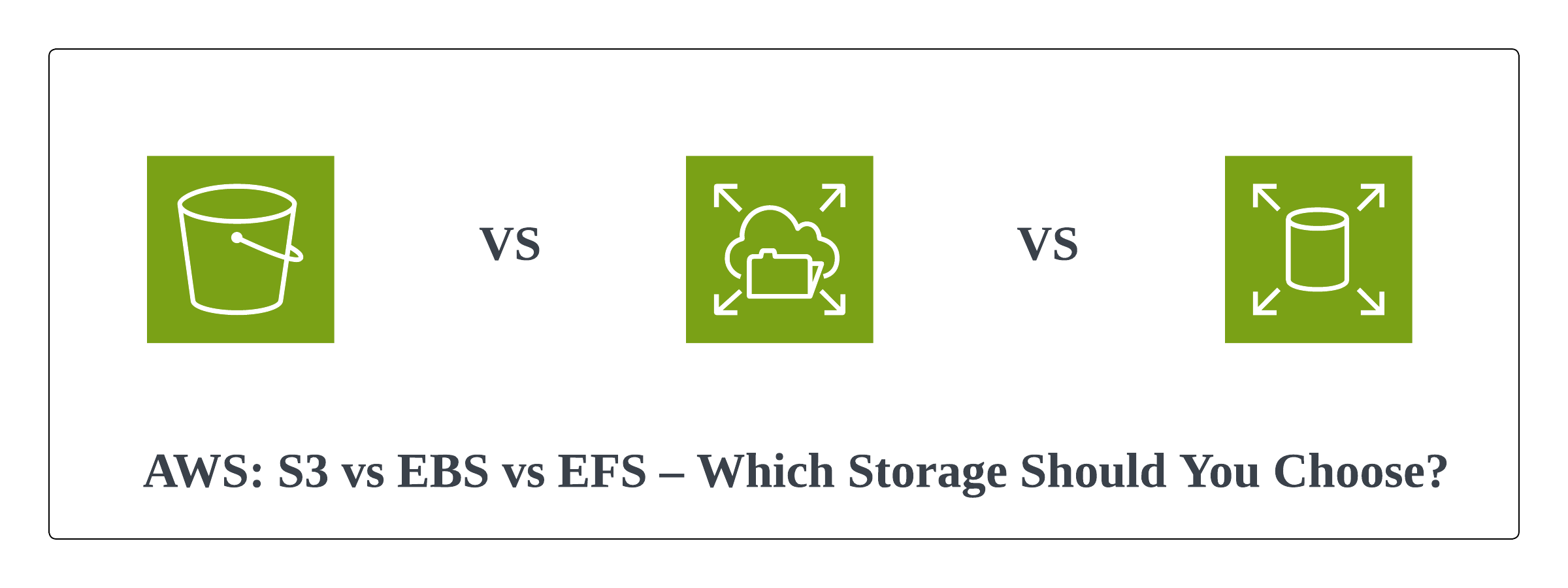AWS: S3 vs EBS vs EFS – Which Storage Should You Choose?
AWS offers multiple storage solutions, but choosing the right one can be tricky. Amazon S3, EBS, and EFS are three commonly used options, each designed for specific workloads. Picking the wrong one can impact performance, cost, and scalability.
Amazon S3 (Simple Storage Service):
- Type: Object storage
- Use Cases:
- Backup and archival
- Hosting static websites
- Storing large datasets like images, videos, logs
- Pros:
- Virtually unlimited storage
- High durability (99.999999999%)
- Cost-effective for infrequently accessed data
- Cons:
- Higher latency compared to block storage
- Not suitable for traditional file systems
Amazon EBS (Elastic Block Store):
- Type: Block storage
- Use Cases:
- Running databases or applications that require fast, consistent performance
- Boot volumes for EC2 instances
- Pros:
- Low latency and high performance
- Persistent storage that can be detached and reattached to EC2 instances
- Cons:
- Tied to a single Availability Zone
- Scales per volume (not ideal for shared file storage)
Amazon EFS (Elastic File System):
- Type: File storage (NFS-based)
- Use Cases:
- Shared file storage for multiple EC2 instances
- Content management systems or home directories
- Pros:
- Scales automatically as you add data
- Multiple EC2 instances can access simultaneously
- Cons:
- More expensive than EBS for the same capacity
- Latency higher than local block storage

Figure: AWS S3 vs EBS vs EFS – Different storage options for different use cases
Quick Comparison:
- S3: Best for static data and backups (object-based).
- EBS: Best for applications needing high-performance block storage.
- EFS: Best for shared, scalable file storage.
Conclusion:
Each AWS storage service has its strengths. Choose S3 for static and archival data, EBS for high-performance single-instance storage, and EFS for shared scalable file systems. The right choice depends on workload type, access patterns, and cost considerations. 🚀
Rethought Relay:
Link copied!
Comments
Add Your Comment
Comment Added!




No comments yet. Be the first to comment!